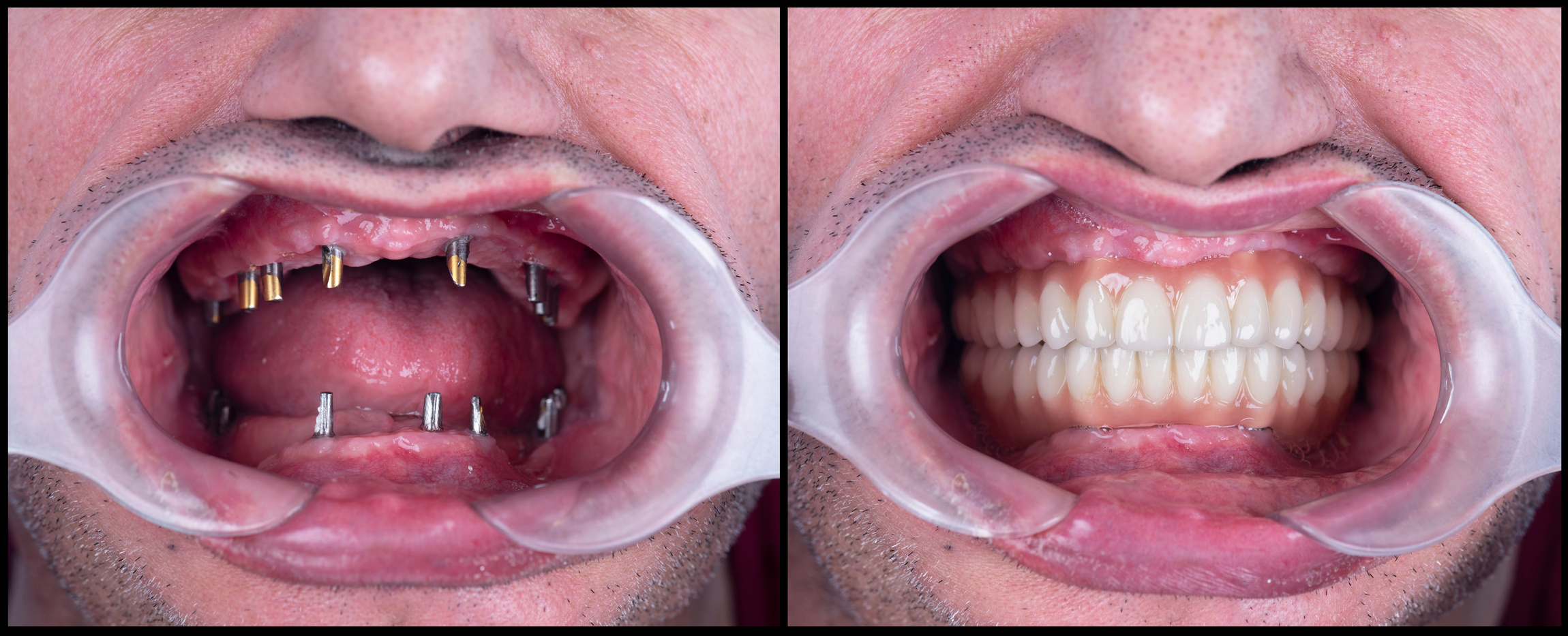Dental Sense - An Overview
Dental Sense - An Overview
Blog Article
Facts About Dental Sense Revealed
Table of Contents4 Simple Techniques For Dental SenseSome Of Dental SenseDental Sense Can Be Fun For EveryoneThe Best Guide To Dental Sense
are clinical gadgets surgically dental implanted into the jaw to restore an individual's capability to chew or their appearance. They offer support for man-made (phony) teeth, such as crowns, bridges, or dentures. When a tooth is shed because of injury or illness, a person can experience complications such as rapid bone loss, faulty speech, or modifications to eating patterns that lead to pain.Oral dental implant systems include a dental implant body and dental implant joint and might also consist of a joint fixation screw. Kids dental. The dental implant body is surgically inserted in the jawbone in place of the tooth's root. The oral implant joint is normally affixed to the dental implant body by the abutment addiction screw and expands with gums right into the mouth to support the attached synthetic teeth
(https://ameblo.jp/dentalsense1/entry-12882048969.html)Structure of The Dental Implant System picking dental implants, talk with your oral supplier concerning the possible advantages and dangers, and whether you are a prospect for the procedure. Points to think about: Your general wellness is an important consider establishing whether you are a great candidate for dental implants, the length of time it will certainly require to heal, and for how long the implant may remain in place.
Smoking might influence the recovery procedure and reduce the long-term success of the dental implant. The recovery process for the dental implant body may take several months or longer, during which time you generally have a temporary abutment in place of the tooth. the dental implant treatment: Carefully comply with the dental health guidelines provided to you by your oral supplier.
Dental Sense - Truths
Implant failing can result in the demand for another surgery to deal with or replace the dental implant system. Brings back the capability to chew Brings back cosmetic look Aids maintain the jawbone from diminishing due to bone loss Protects the health and wellness of the surrounding bone and gum tissues Aids keep nearby (nearby) teeth secure Boosts lifestyle Damage to surrounding natural teeth throughout dental implant positioning Injury to the surrounding tissues throughout surgical treatment, such as sinus opening Injury during surgical treatment (as an example, fracture of bordering jawbone) Insufficient feature, such as feeling like the teeth do not bite together generally A feeling that the tooth is loose or twisting in location resulting from an abutment screw loosening up Implant body failing (looseness of the dental implant body) because of systemic infection, which might be most likely in you can find out more clients with unrestrained diabetics issues due to regional infection in bone and gum tissues supporting the dental implant body as a result of delayed healing, which might be most likely in individuals who smoke Difficulty cleaning up the periodontals around the implant, resulting in poor oral hygiene Neglected gum illness Post-surgical numbness because of nerve impingement or damages Always inform healthcare carriers and imaging service technicians that you have oral implants before any kind of magnetic vibration imaging (MRI) or x-ray procedures.
FDA is not knowledgeable about any kind of damaging events reported for MRI or x-ray procedures with dental implants. Oral implants systems are usually made from materials that adhere to worldwide consensus criteria of the International Company for Standardization (ISO) or ASTM International. These criteria have details of what makes a risk-free material.

An oral implant is a framework that replaces a missing out on tooth. With screw-like devices, the surgeon inserts a dental implant into the jawbone, and it acts as an anchor for a synthetic tooth, called a crown.
Dental Sense Fundamentals Explained
Some people are not qualified for dental implant surgical procedure. It is for oral specialists to operate on individuals with: intense illnessuncontrollable metabolic diseasebone or soft cells condition or infectionIf these issues are fixed, an individual can have the surgical treatment. In, dental doctors avoid operating on people with: If individuals with any one of the above undergo dental implant surgical procedure, there is a greater risk of the implant falling short.

Oral implant surgery is a tailored process. It's not the exact same for everyone. The adhering to provides a basic review of what you can anticipate your dental practitioner, dental specialist, periodontist or prosthodontist to do: Place the dental implant surgically. Give you time to recover. Attach the message and final crown, bridge or denture.
Next off, your cosmetic surgeon will meticulously position the oral implant into your jaw. Your cosmetic surgeon will certainly rearrange your gum tissues and shut the laceration with stitches. If your implant is near the front of your mouth, your dental practitioner will certainly make a temporary tooth for you to use up until you recover. This way, you will not have a void in your smile while you recuperate.
Little Known Questions About Dental Sense.
During the recovery stage, your jawbone ought to fuse to the oral implant. This process can take anywhere from 3 to nine months.
When your dental implant heals, your dental expert can affix the joint (tiny port post) and your last repair (crown, bridge or denture). This normally takes regarding one hour to complete and may require a second small surgery. You shouldn't really feel any kind of discomfort during your dental implant procedure because your provider will utilize medicine to numb your periodontals.
Report this page